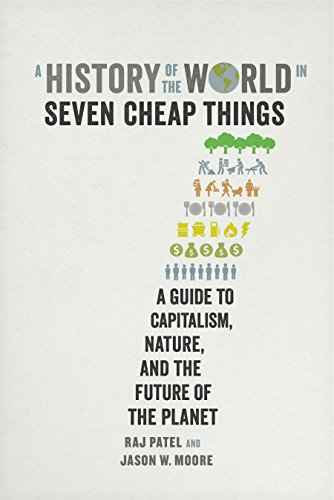This semester, members of the Social Sciences department are pleased to announce the start of a book group for undergraduate students, graduate students and faculty interested in learning about and discussing a variety of social science subjects. The group is planning to meet twice per semester, and the first meeting will be on Thursday, March 1, at 5 p.m.
The group’s first book will be “A History of the World in Seven Cheap Things: A Guide to Capitalism, Nature and the Future of the World” by Raj Patel and Jason W. Moore. In the book, which came out last year, Patel and Moore look at how modern commerce has transformed the planet by focusing on how nature, money, work, care, food, energy and lives are used to bolster capitalism, respond to economic crises and keep things cheap.
Famous for two other well-known books, “Stuffed and Starved: The Hidden Battle for the World Food System” (2008), and “The Value of Nothing” (2010), Raj Patel is an activist, academic, and writer who has worked extensively in Zimbabwe, South Africa and the United States on food and urban poverty with numerous publications on subjects ranging from philosophy to public health.
Jason W. Moore is an Assistant Professor in the Department of Sociology at Binghamton University. His other well-known book, “Capitalism in the Web of Life: Ecology and the Accumulation of Capital” (2015), analyzes the relationship between economic and environmental crises. Moore is the coordinator of the World-Ecology Research Network, a community of scholars studying the historical change in human-nature interactions and dissolving the boundary between them. He is currently working on a book entitled “Ecology and the Rise of Capitalism.”
Bringing their research interests together, Patel and Moore have written a book that is lauded for its broad scope and socioeconomic vision, and the groundedness of that vision in the ecological realities of our time. The book presents ways in which a more sustainable civilization might be achieved, in addition to laying out a compelling historical narrative.
To join the book group, or to find out more, contact Dr. LouAnn Wurst, Professor of Archaeology, at lawurst@mtu.edu, or Kyla Valenti, Social Sciences undergraduate student, at klvalent@mtu.edu.


